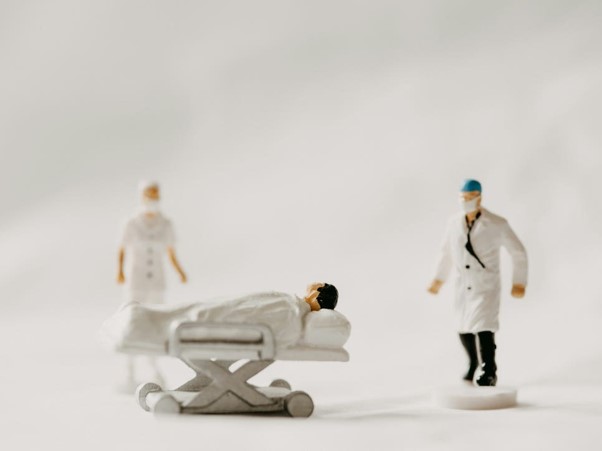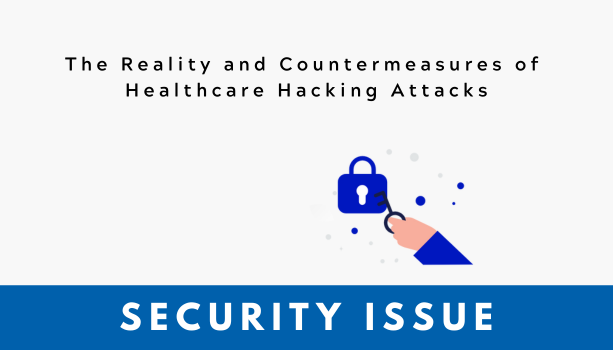[Security Issue] The Reality and Countermeasures of Healthcare Hacking Attacks: Patients’ Lives Are at Risk
Cybersecurity in the healthcare sector is becoming more crucial than ever. As medical institutions accelerate digital transformation, Electronic Medical Records (EMR) and Picture Archiving and Communication Systems (PACS) have been widely adopted. Consequently, the proportion of sensitive patient information stored and managed digitally has surged. In particular, at the end of 2023, major hospitals in South Korea suffered ransomware attacks(Healthcare Hacking Attacks) that disrupted medical services, significantly highlighting the importance of healthcare cybersecurity.

Healthcare Hacking Attacks
The Importance of Healthcare Security Through Domestic and International Case Studies
In November 2023, the hacking incident at Korea University Medical Center shocked the Korean healthcare industry. A ransomware attack paralyzed the hospital’s information systems, shutting down emergency rooms and severely disrupting outpatient services. As healthcare digitalization progresses, such cybersecurity incidents are occurring more frequently both in Korea and abroad.
In 2022, CommonSprit Healthㅡa large healthcare chain in the U.S. operating over 140 hospitalsㅡsuffered a ransomware attack that crippled its EMR system. The incident delayed emergency surgeries and caused major service disruptions. Recovery costs reached $150 million, and millions of patients’ data were exposed. Even earlier, in 2017, the UK’s National Health Service(NHS) fell victim to the WannaCry ransomware, which halted medical services.

4 Essential Cybersecurity Tips Medical Institutions must Implement Immediately
Medical Institutions must pay close attention to the following key security measures. These are not just recommendations ㅡ they are essential practices in today’s modern healthcare environment.
- Encrypt All Data ㅡ Always
Data encryption is non-negotiable. Both stored and in-transit medical data must be protected using strong encryption methods. Even if hackers intercept the data, proper encryption ensures it remains indecipherable. Particularly, sensitive records such as Electronic Medical Records(EMR) and medical imaging data should be encrypted using advanced standards like AES-256. End-to-end(E2E) encryption must be implemented for all data transmissions. In addition, secure management of encryption keys is critical. - Secure Medical Devices
With the growing number of network-connected medical devices, the risk of cyberattacks has significantly increased. Hospitals must ensure that all connected devices—including MRI, CT, ultrasound machines, patient monitoring systems, and syringe pumps—receive regular security patches and updates. Older devices that cannot be easily updated should be isolated on separate secure networks. Periodic security checks for all networked devices are highly recommended. - Establish a Robust Backup System
To defend against ransomware attacks, it is crucial to regularly back up critical medical data and implement a system that allows for rapid recovery. Following the 3-2-1 backup rule is a best practice: keep at least three copies of the data, store them on two different types of media, and keep one copy offline or offsite. Additionally, conducting quarterly backup recovery drills ensures that institutions can respond quickly and effectively in a real crisis. - Provide Regular Security Training
Ongoing security education for healthcare professionals and staff is essential. Training should raise awareness of social engineering attacks and ensure strict compliance with internal security policies. Practical education on topics like identifying phishing emails, managing strong passwords, and handling suspicious links should be included. Quarterly phishing simulations and regular updates on emerging threats can help reinforce a culture of cybersecurity.
Implementing a security system is not a one-time task—it requires continuous monitoring and improvement. As cyber threats continue to evolve, healthcare organizations must regularly assess and update their security frameworks.
Cybersecurity in healthcare is not just about protecting data—it directly impacts patient safety. With cyberattacks on medical institutions on the rise, cybersecurity has become a core component of healthcare delivery. Institutions must continuously strengthen and enhance their security measures to ensure patient data protection and uninterrupted care.
* Would you like to learn more?
We invite you to discover how we can help your business.

